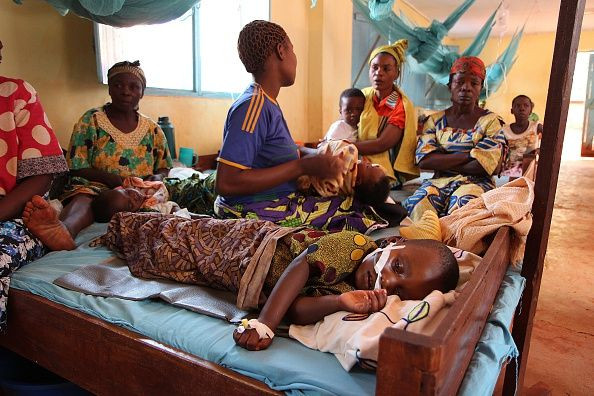Malaria Vaccine Candidate Offers Up To 1 Year Of Protection, Could Save Countless Lives

Each year, malaria kills around half a million people, most of whom are children under 5. Unfortunately there is no cure for the devastating disease, but according to a recent study, we may be close to the next best thing: a vaccine. The report claims that one experimental vaccine called PfSPZ can offer up to a year of protection from malaria infections, representing a major step forward in vaccine development.
The Plasmodium falciparum (Pf) sporozoite (SPZ) vaccine, better known as PfSPZ was developed by Biotech company Sanaria Inc. It represents what may be the most promising and longest-lasting protection from the malaria virus to date, Time reported. During trials, the vaccine was given to 101 malaria-free healthy adults aged 18 to 45. Of this group, 59 received the vaccine from three or four IV immunization drips or four shots. Thirty-two participants served as controls and were not vaccinated. Three weeks later, all participants, including the controls, were then exposed to to mosquitoes carrying a strain of malaria that was used to develop the vaccine.
Blood samples were then taken from volunteers and results showed various degrees of protection from the virus. For example, of the nine participants who received three IV doses of the vaccine, only three had no detectable malaria in their blood following the deliberate exposure. Of the nine participants who received four doses, seven were protected. Only three of the eight participants who received four IV doses were protected.
The trial also investigated the long-term protection abilities of the vaccine by exposing an additional 11 volunteers to the infected mosquitoes 21 and 52 weeks after their initial immunization. Six of the 11 had no detectable parasites in their blood after exposure at 21 weeks. Four of these six were then exposed again at 59 weeks and none of them became infected with the disease. On the other hand, all of the unvaccinated controls did.
Malaria is a deadly parasitic blood disease transmitted to humans through a mosquito bite. According to Medical News Today, the parasites multiply in the body once a person becomes infected, and eventually destroy their red blood cells. This can cause symptoms ranging from fever and chills to convulsions and abnormal bleeding. If left untreated, patients can die.
The results from this study are very promising, and show not only that IV administration seems to be the best way to administer the PfSPZ vaccine, but also hint at how long the vaccine may be effective. The results also suggest that PfSPZ may present the best chance to create a malaria vaccine. In a recent statement, Dr. Robert A. Seder, chief of the Cellular Immunology Section of NIAID's Vaccine Research Center and principal investigator of the trial, announced that they would be going forward with testing of the vaccine candidate.
"Based on the favorable safety profile," Seder said, "we're testing higher doses in larger trials to see if even greater protection can be achieved long-term against other P. falciparum strains different than the vaccine strain."
Source: Ishizuka AS, Lyke KE, DeZure A, et al.Protection against malaria at 1 year and immune correlates following PfSPZ vaccination. Nature Medicine. 2016



























